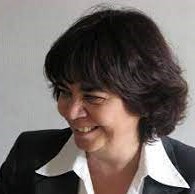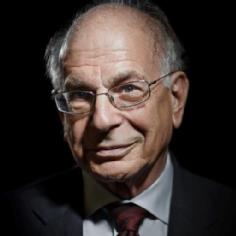Keynote Speakers
 |
Gaëlle Vallée-Tourangeau (President-elect EADM),Gaelle is a professor of behavioural science and director of research and enterprise for Kingston Business School. Her research interests include the study of Bayesian reasoning, insight problem-solving, and the role of interactivity in human cognitive performance. She has also studied how experts and professionals make decisions in applied settings, such as healthcare workers deciding to vaccinate against the flu or academic peer-reviewers deciding to recommend a grant proposal for funding. Her research has received funding support from the Fyssen Foundation, the Leverhulme Trust, Sanofi-Pasteur, Kingston University, and the Wellcome Trust. She leads the Decision Science & creative insights lab, which conducts behavioural science research to promote effective, ethical and sustainable judgment and decision-making and creative cognition. |
On the Making of Decisions
For most of us, decision-making is a humdrum activity. We face a multitude of decision points everyday, from mundane choices about what to eat, what work task to complete next or whether to wear a mask in public spaces, to life-changing choices such as what career to pursue, whom to hire or marry, or whether to undertake medical treatment. So people make up their minds all the time… or do they? In her presidential address, Professor Vallée-Tourangeau draws on two decades of her research seeking to better understand the processes which underpin judgments and decisions as she discusses the meaning of “making” decisions, the role of agency, decision trajectories and the limits of methodological individualism to understand the fabric of human decision-making.
 |
Ilana RitovIlana is a professor of psychology at the Seymour Fox School of Education and the Federmann Center for the Study of Rationality at the Hebrew University of Jerusalem. Her research aims to elucidate the interplay between features of the social context and individuals’ choice behavior, encompassing such themes as the omission bias, identifiable other effects, the consequences of competition, multi-issue negotiations, and framing effects in the valuation of labor. Her recent research has focused on deliberate ignorance. |
Looking the other way or simply not knowing: choice behavior and the availability of individuating information
Do our choices change when we know who they affect, even when what we know of them is irrelevant to the decision? If we do not know those affected, but can find out, do we sometimes prefer to remain ignorant? In this talk, I will examine these questions across two very different decision contexts: allocation of respiratory ventilators to patients in critical condition and monetary donations to unendowed recipients in a dictator game. Findings in both cases suggest that the effect of the presence or absence of information about those affected depends on whether the decision maker had the possibility to obtain this information. Furthermore, the choice to willfully avoid individuating information is affected by the decision maker’s beliefs and views. The findings contribute to the growing literature on deliberate ignorance and highlight the role it plays in everyday as well as policy decisions.
 |
Rory SutherlandVice Chairman, Ogilvy UK |
Rory has an attractively vague job title which has allowed him to co-found a behavioral science practice within the agency. He works with a consulting practice of psychology graduates who look for ‘unseen opportunities’ in consumer behaviour - these are the often small contextual changes which can have enormous effects on the decisions people make - for instance tripling the sales rate of a call centre by adding just a few sentences to the script. Put another way, lots of agencies will talk about "bought, owned and earned" media: we also look for "invented media" and "discovered media": seeking out those unexpected (and inexpensive) contextual tweaks that transform the way that people think and act. It is a hugely valuable activity - but, alas, not particularly lucrative. This is because clients generally do not have budgets for solving problems they did not know they had. Before founding Ogilvy Change, Rory was a copywriter and creative director at Ogilvy for over 20 years, having joined as a graduate trainee in 1988. He has variously been President of the IPA, Chair of the Judges for the Direct Jury at Cannes, and has spoken at TED Global. He writes regular columns for the Spectator, Market Leader and Impact, and also occasional pieces for Wired. He is the author of two books: The Wiki Man, available on Amazon (at prices between £1.96 and £2,345.54, depending on whether the algorithm is having a bad day), and the best-selling Alchemy, The surprising Power of Ideas which don't make Sense, published in the UK and US in May 2019. Rory is married to a vicar and has twin daughters of 18. He lives in the former home of Napoleon III - unfortunately in the attic. He is a trustee of the Benjamin Franklin House in London and a Patron of Rochester Cathedral.
 |
|
Daniel Kahneman is Professor Emeritus of Psychology and Public Affairs at Princeton. He is best known for his work with Amos Tversky on human judgment and decision making, for which he was awarded the Nobel Prize in Economics in 2002. Kahneman has also studied a number of other topics including attention, the memory of experiences, well-being, counterfactual thinking, and behavioral economics. His book Thinking, Fast and Slow, which appeared in 2010, has sold more than seven million copies worldwide. A new book titled Noise (with Olivier Sibony and Cass Sunstein), published in May 2021, was a New York Times best-seller.
Kahneman’s honors include, among others, the Nobel Prize in Economic Sciences (2002), the Presidential Medal of Freedom (2013), the Distinguished Lifetime Career Contribution of the American Psychological Association, the Grawemeyer Prize in Psychology (with Amos Tversky), and the Thomas Schelling Award for contributions to policy. He holds honorary degrees from Harvard, Yale, Cambridge, the Sorbonne and several other Universities.
Awards Ceremony and Presentations NB this starts approximately 53 seconds into the recording.
